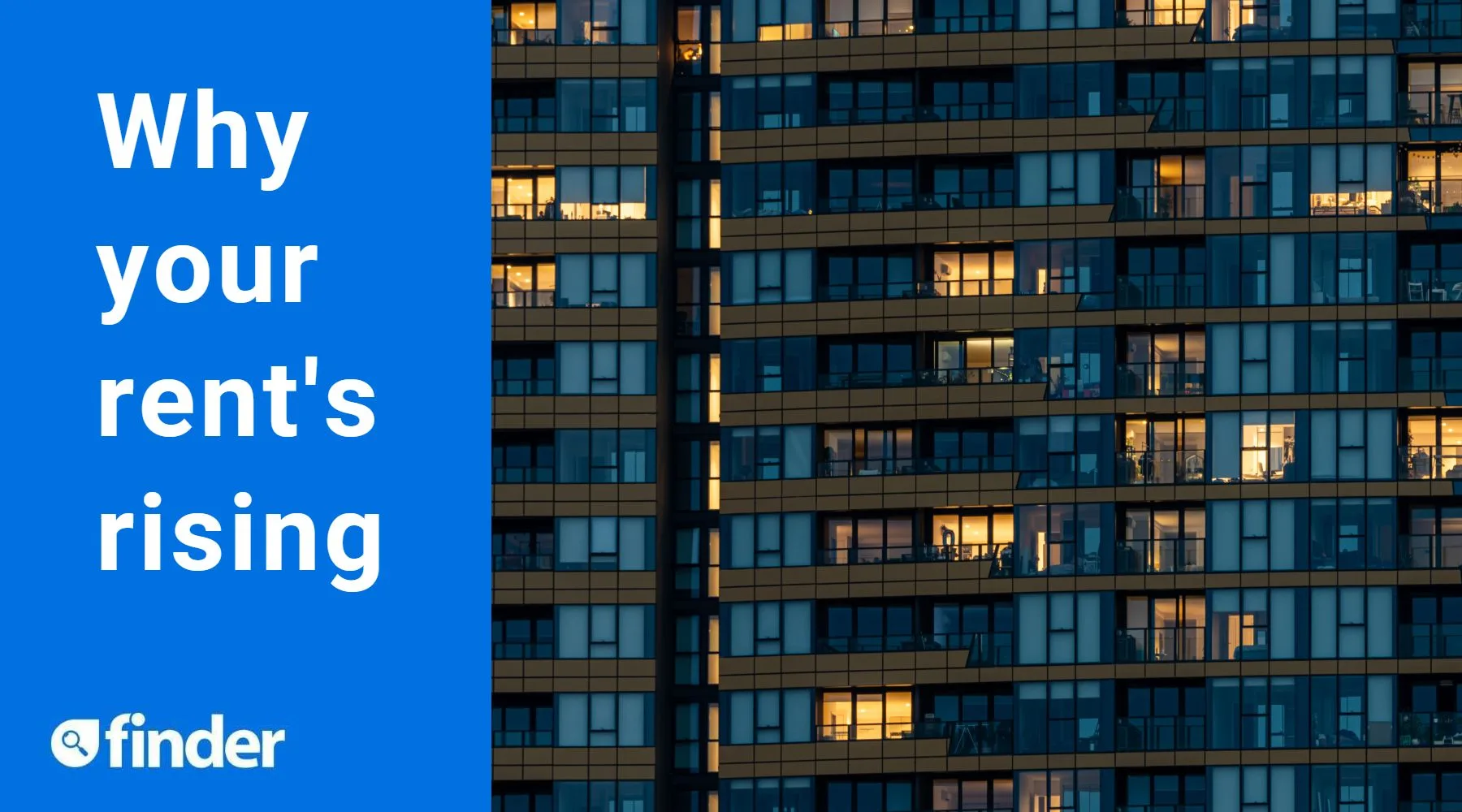Why your rent is rising so fast (and 4 things you can do about it)

Rising living costs and a shortage of rental properties are driving rents upward.
Caught in a perfect storm of rising living costs and a shortage of rental properties, Australian renters are struggling.
"There's already a chronic undersupply of advertised rental stock in many parts of the country," said Corelogic economist Kaytlin Ezzy. "Such a low number of available rentals is a key factor that pushed rental values higher again last quarter."
"The vacancy rates we are seeing across Queensland are incredibly tight," Real Estate Institute of Queensland Antonia Mercorella told Finder. "We're in unprecedented territory."
Real Estate Institute of Queensland CEO Antonia Mercorella cites several factors for the supply crunch, explaining that many investors have sold up, either to cash out after strong price growth during the pandemic, or because their own costs have risen as interest rates have jumped up.
"Sometimes rental properties are sold to owner-occupiers and there's one less rental property on the market," she added.
"It's likely some tenants are now sacrificing the spare room or home office and re-forming share houses that disbanded throughout COVID in order to share the rental burden," said Ezzy.
But beyond share housing and downsizing, what can renters actually do about out of control rents?
1. Know your rights
Just because landlords have the advantage right now doesn't mean you have to just accept whatever terms they offer.
Knowing your rights can help you push back on an unlawful increase or an improper notice to vacate.
"Legislation does govern the way that rental increases can be implemented. As a general rule, owners can't just arbitrarily charge more rent," Mercorella said.
Before accepting a price increase from your landlord, check the rules in your state or territory. How much notice does your landlord need to give you? Can the landlord just jack up the rent from next week? Have they put it in writing?
Renters should read up on the relevant laws and check with their local tenants union.
2. Don't be afraid to negotiate
If you've been renting in the same place for a while and you always pay your rent on time, you might be in a stronger negotiating position than you think.
A reliable, long-term tenant offers peace of mind to a landlord. And you can lean on that when trying to sign a new lease.
Check what the rent is on comparable rental properties in your area before agreeing to an increase. This way you have a better sense of what's reasonable.
While you might not be able to avoid a rent increase completely, you might be able to negotiate down to a smaller one.
3. Put your best foot forward
A rental application can be a pretty invasive and unpleasant process these days. But if you're looking for a new place to rent in a crowded market it helps to make a good impression.
You could create a renter's resume or write a cover letter to go with your application, to put a personal face to your application and help stand out from the pack.
Getting good references from former landlords or agents can also help.
4. Watch out for scams
Another downside to an overheated rental market is an increase in scams. Rental scams often take place on buy and sell platforms with less oversight, like Gumtree or Facebook marketplace.
Property management expert Ashleigh Goodchild recommends cross-checking a property to see if it's listed on a reputable site like Domain or realestate.com.au, and try to meet an owner or agent in person if possible.
Check out Finder's 2023 Cost of living report to learn more about how inflation is impacting Australians. Get more helpful money tips to help you save.
Ask a question
